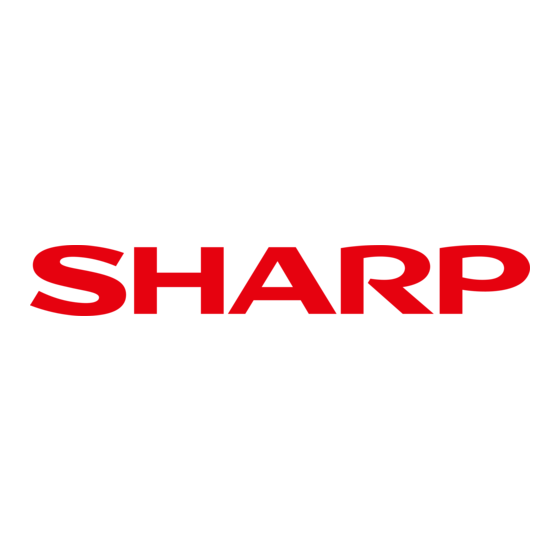Sharp CD-SW300H Manual de instrucciones - Página 36
Navegue en línea o descargue pdf Manual de instrucciones para Sistema estéreo Sharp CD-SW300H. Sharp CD-SW300H 48 páginas. Mini component system
También para Sharp CD-SW300H: Manual de instrucciones (48 páginas), Manual de inicio rápido (2 páginas), Manual de inicio rápido (2 páginas)

Using the Radio Data System (RDS) (continued)
CD-SW300H
CD-SW330H
Notes:
If the display has stopped flashing, start again from step 2. If the
unit finds a desired programme type, the corresponding channel
number will flash for about 4 seconds, and then the station name
will flash for 7 seconds, which will remain lit.
If you want to listen to the same programme type of another
station, press the RDS PTY button whilst the channel number or
station name is flashing. The unit will look for the next station.
If no station can be found, "NOT FOUND" will appear for 4
seconds.
If you select the traffic programme
If you select the traffic programme (TP) in step 3, "TP" will appear.
(This does not mean that you can listen to the traffic information at
that time.)
When the traffic information is broadcast, "TA" will appear.
To specify station names and select stations manually:
You can select a station by specifying the name (BBC R1, BBC R2,
etc.) from the stations stored in memory.
Before starting this operation, you must store one or more station
names in memory.
1 Press the TUNER (BAND) button to select the FM band.
2 Press the PRESET (
3 The station name will be displayed for 6 seconds. Then the
display will change.
36
or
) button to select a desired station.
Descriptions of the PTY (programme Type) codes, TP (Traffic
programme) and TA (Traffic Announcement).
You can search for and receive the following PTY, TP and TA signals.
NEWS
Short accounts of facts, events and publicly expressed
views, reportage and actuality.
AFFAIRS
Topical programme expanding or enlarging upon the
news, generally in different presentation style or
concept, including debate, or analysis.
INFO
Programmes whose purpose is to impart advice in the
widest sense.
SPORT
Programme concerned with any aspect of sport.
EDUCATE Programme intended primarily to educate, of which
the formal element is fundamental.
DRAMA
All radio plays and serials.
CULTURE Programmes concerned with any aspect of national or
regional culture, including language, theatre, etc.
SCIENCE
Programmes
about
technology.
VARIED
Used for mainly speech-based programmes usually of
light-entertainment nature, not covered by other
categories. Examples include: quizzes, panel games,
personality interviews.
POP M
Commercial music, which would generally be
considered to be of current popular appeal, often
featuring in current or recent record sales charts.
ROCK M
Contemporary modern music, usually written and
performed by young musicians.
EASY M
Current contemporary music considered to be "easy-
listening", as opposed to Pop, Rock or Classical, or
one of the specialised music styles, Jazz, Folk or
Country. Music in this category is often but not always,
vocal, and usually of short duration.
the
natural
sciences
and
